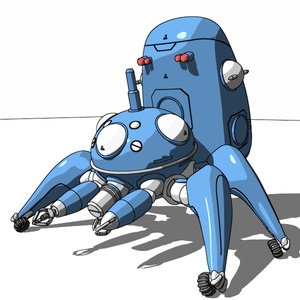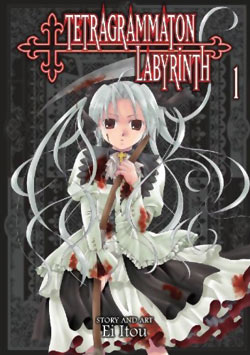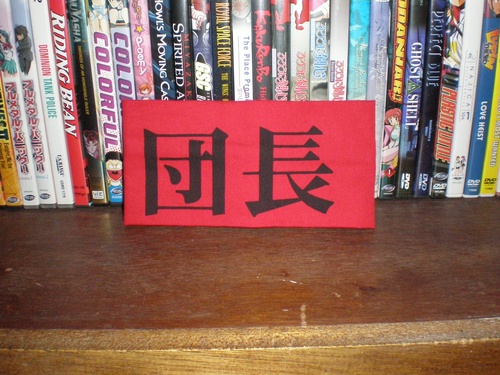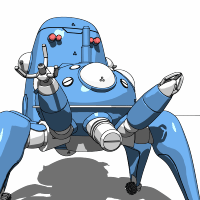August 31, 2007

While I am certainlly no fan of the ACLU, there are times when they serve their intended purpose of helping to protect the rights of individuals when the governement attempts to violate them. Sadly Japan is lacking an ACLU or CBLDF* . Yet more unconstitutional and unethical actions by the Japanese police, being aided and abetted by the courts no doubt. A brief overview from Hisei Democracy.
In the light of the recent arrest of a doujin artist on obscenity charges we take a look back at the past five years in the history of free speech regulation and litigation vis a vis drawn pornography in Japan. We examine the current state of affairs and speculate as to the fate of the free speech right enshrined in article 13 of Japan’s constitution, one that now seems to rest on a very fragile footing indeed.The first challenge to freedom of artistic expression came in the fall of 2002 in the form of the arrest of manga artist Beauty Hair as well as the president and editor in chief of Shobunkan Co. for the publication of eromanga compilation Misshitsu. This was the first ever arrest on obscenity grounds of a mangaka, and resulted in a prison sentence (later reduced to a fine) for the publishing house president. Icarus has coverage of the recent developments in the case, as does ComiPress. As Simon of Icarus points out, Beauty Hair is still active and his more recent work is readily available (albeit highly censored compared to earlier fare).
And a brief bit of background from the Icarus Publishing Blog.
The irony is that there had been no significant obscenity case for several decades up until recently, because censors were finding themselves on the losing end in both the judicial court and the court of public opinion. Had they continued pushing, the Japanese obscenity statute could have been in danger of being repealled completely. But with the Misshitsu case, in which the judge flat-out ignored pro-defense testimony from legal and social experts, the moral crusaders and prosecutors found new life. So while such cases are never good for the individuals involved, the very tiny potential silver lining is that this may get the public to pay attention to the issue of free speech again, and perhaps the question of whether article 175 has any place in modern Japan may be settled once and for all.
So what is it I mean by the acts of Japanese governement being unconstitutional, I shall explain in detail. First let us examine the appropriate section of the Japanese criminal code, namely Article 175 of Chapter XXII of the Criminal Code of 1907, as Amended, March 08, 2006.
Article 175. (Distribution of Obscene Objects)
A person who distributes, sells or displays in public an obscene document, drawing or other objects shall be punished by imprisonment with work for not more than 2 years, a fine of not more than 2,500,000 yen or a petty fine. The same shall apply to a person who possesses the same for the purpose of sale.
The first noteable thing about this article is the lack of definition of just what is obscene, this is the first area where the constitutionality of the law comes into question. In the US this law would be struck down for being "Vague and Overly Broad". Meaning that the lack of a clear definition of what obscenity is allows for too many contradictory and conflicting definitions as to what would constitute a violation of the law. What is rather insidous and odious about Japanese obscenity law is how it is enforced as defined, or rather not defined by Section 1, Article 180 of Chapter XXII of the criminal code.
Article 180. (Complaints)
(1) The crimes prescribed for in Articles 176 through Article 178 and attempts of the above-mentioned crimes shall be prosecuted only upon complaint.
(2) The provision of the preceding paragraph shall not apply when the crimes proscribed under Article 176, paragraph 1 of Article 178 or attempts of the above-mentioned crimes are committed jointly by two or more persons who are at the scene of crime.
The deliberate absence of Article 175 in Section 1 of Article 180 means that rather than requiring a complaint from a citizen to the police, the police themselves may charge such a violation of their own volition. In concept this meant only to happen when such an act ocurs in plain view of an officer, otherwise most such actions would be based upon a complaint. The Japanese police however have shown of late that they are, likely with the encouragement of prosecutors and possibly judges, seeking out what they see as violations of Article 175. This is to turn the whole concept of innocent until proven guilty on its ear, when the police stop being impartial investigators and actively seek out violations of the law that are not based upon strict technical definitions (like speeding, running a stop sign, shoplifting etc) they are to an extent acting as judge and jury because the have to make a personal judgement as to wether or not the material in question is in their opinion a violation of Article 175.
One thing that I found most disturbing while reading the Japanese criminal code was the utter lack of definitions as to just what a specific crime entails, and what acts must comitted and conditions must be met to establish a finding of guilt. This is even more disturbing given that there is currently no form of Jury trial in Japan. The amount of discretion left in the hands of judges who acting both as finders of guilt and innocence and the decider of points of law and referee between defense and prosecution creates a system that prevents the judge from acting in an impartial manner. This concern for definitions is no small manner, US laws at both the state and federal levels contain very exacting definitions as to what constitutes a crime and what acts are not crimes and even what certain documents are. An example from the Kansas Annotated Statues, Chapter 22, Criminal Procedure, Article 22, General Definitions:
(4) "Arrest" means the taking of a person into custody in order that the person may be forthcoming to answer for the comission of a crime. The giving of a notice to appear is not an arrest.(8) "Complaint" means a written statement under oath of the essential facts constituting a crime, except that a citation or notice to appear issued by a law enforcement officer pursuant to and in compliance with K.S.A. 8-2106 and amendments thereto or a citation or notice to appear issued pusuant to and in compliance with K.S.A. 32-1049 shall be deemed a valid complaint if it is signed by the law enforcement officer.
Now we come to the heart of the matter, the fact that Article 175 is a clear violation of at least one Article of the Japanese constitution and very likely two others as well. The clear violation is the absolute right to free speech and the clause preventing censorship in Article 21:
Article 21
Freedom of assembly and association as well as speech, press and all other forms of expression are guaranteed. No censorship shall be maintained, nor shall the secrecy of any means of communication be violated.
The clarity here is without question, the fact that the Government has enforced censorship upon artists in the name of preventing obscenity is in clear violation of the second sentence of Article 21. What is all the more agregious is that the Japanese courts have failed in their duty to throw out Article 175 as unconstitutional prior restraint, legally the most offensive form of censorship. The people have the right to draw whatever they wish, which includes people having sex and showing all of the details up close and personal wether some judge or prosecutor likes it or not. As for the other two Articles that may be violated by Article 175 are Articles 11 and 13.
Article 13
All of the people shall be respected as individuals. Their right to life, liberty, and the pursuit of happiness shall, to the extent that it does not interfere with the public welfare, be the supreme consideration in legislation and in other governmental affairs.Article 11
The people shall not be prevented from enjoying any of the fundamental human rights. These fundamental human rights guaranteed to the people by this Constitution shall be conferred upon the people of this and future generations as eternal and inviolate rights.
The violation of Articles 11 and 13 are subtle but very real, the people being charged are having their rights violated by the government which both articles forbid. Additionally the guarantee to fundamental human rights includes the frredom of speech and of the press so Article 175 would be unconstitutional for this reason even if Article 21 didn't exsist. Article 11 plays the same roll here as the ninth amendemnt in the US Bill of Rights, acting as a catch all to aknowledge and reserve to the people any rights not enumerated elsewhere. The outcome of this case is going to very instructive as to just where Japan is headed in terms of future censorship and what the public at large will do to see to it that their rights are not violated by their government. I hope that this case will ignite a public debate as to wether Article 175 has any place in the modern net connected world where uncensored porn is a click away. Conversely I am not too optimistic about the public response, the Japanese as consensus driven society tend to go along with whatever the government puts forward without to much opposition, this along with a lack of strong organizations to help the victims of censorship means that this guy is in for a long and rather rough, not to mention expensive ride through the often questionable Japanese legal system. I wish him luck, because he is going to need it.
*CBLDF= The Comic Book Legal Defense Fund, they fight these kinds of cases here in the US. The do very good work, go to their website, and please make a donation, its tax deductable to boot.
Posted by: raging tachikoma at
08:39 PM
| No Comments
| Add Comment
Post contains 1720 words, total size 12 kb.
August 26, 2007
TETRAGRAMMATON LABYRINTH*

This manga is a recent find, I ran across a copy of the first, and thus far only volume out at Borders last night. I wasn't really looking to add another title to my shopping lists, having been looking for a copy of He is My Master, which I should have bought a while back as there was only one copy in the store at the time and I didn't feel up to driving all over town searching each and every Borders and Barnes & Noble last night. I have done that before when I really wanted a particular manga and I am not ashamed to admit that. Anyway this book is part of Seven Seas new Strawberry Yuri line and it is about a what appears to be a twelve year old girl named Angela and a Nun named Meg that hunt down and destroy demons in early twentieth century London. Note that I said that Angela appears to be twelve but that is not the case. The hook in this series is the fact that you are given just enough information to make you wonder just what is going on and what aren't you being told. The art is top notch and the story very well paced, alternating nicely and smoothly between exposition and action. The exact extent of the relationship between Sister Meg and Angela is still unclear at the close of volume one as with so much else but I have the sneaking suspicsion that the real twist is the secret within the secret as was once said about something else.** I for one can't wait to get my hands on volume two when it comes out.
*Picture shamelessly stolen from Robert's Anime Corner Store
**This remark was made by Dr. John Craven in reference to the CIA's Project Jennifer. For more details on the events that led to Project Jenifer I highly reccomend the book Red Star Rouge by Kenneth Sewell and Clint Richmond.
Posted by: raging tachikoma at
09:40 PM
| No Comments
| Add Comment
Post contains 336 words, total size 2 kb.
August 10, 2007
[Rant] What the hell is with people reading manga in bookstores grabbing a volume and flopping down in front of the shelves right then and their to read through it? I mean the book stores I frequent Borders and Barnes & Noble provide a more than adequate number of chairs through out their stores and in their adjoining cafes wher one can sit and read to your hearts content. Did it ever possibly occur to you that some one might one to see the titles your obscuring? I guess not. All I ask is that you show a little common courtesy, dont block the shelves and the aisles, ok? [/Rant]

Posted by: raging tachikoma at
12:31 AM
| Comments (3)
| Add Comment
Post contains 116 words, total size 1 kb.
36 queries taking 0.0213 seconds, 66 records returned.
Powered by Minx 1.1.6c-pink.












